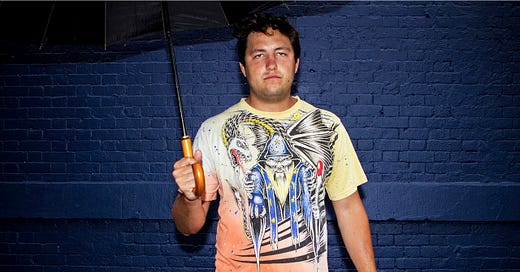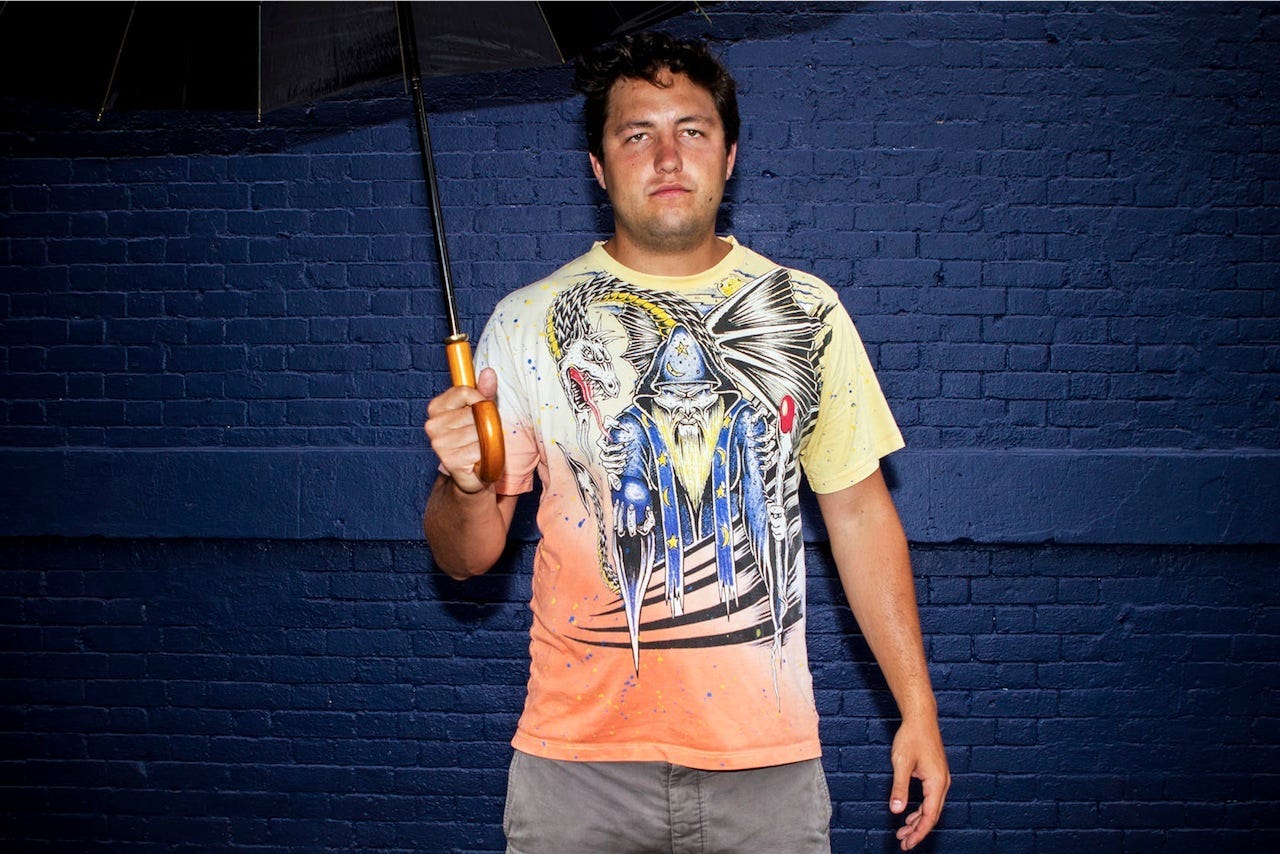Barking at Strangers
Hitting the streets with a comic who just wants to get on stage.
"Free comedy show right across the street featuring today's best...OYSTERS!!!"
“Hey ladies, what is this? Model row over here?”
“Stand-up!”
A brief reflective pause, then continuing to the rhythm of “Get Up, Stand Up” by Bob Marley: “Stand up for your comedy! Stand-up comedy, right a-cross the street!”
Noah Savage calls it verbal diarrhea. He’s standing beneath the yellow awning of Jaja Deli on Bleecker between Sullivan and Thompson, shouting or singing at every fifth or sixth person who walks by. It’s just after six on a Thursday evening, and this portion of Greenwich Village is flush with pedestrians.
“Stand up for your rights. Get up, stand up. Go to a show tonight!”
Savage is looking for particular kinds of people—high school students, tourists, those who appear unsure where they are headed—but anyone will do. At one point, he runs over to three older women and begins telling them about the comedy show; unfortunately, the women don’t speak English. Undeterre…
Keep reading with a 7-day free trial
Subscribe to Narratively to keep reading this post and get 7 days of free access to the full post archives.




